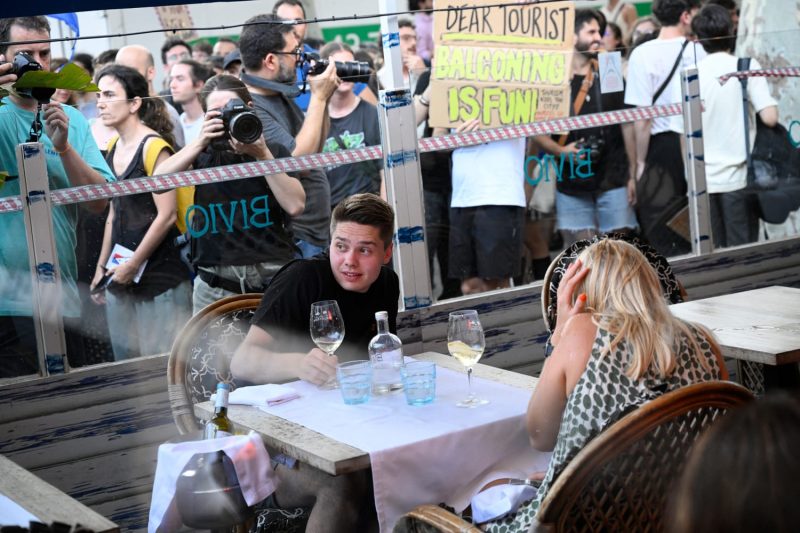Barcelona, a city known for its stunning architectural marvels, picturesque beaches, and vibrant street life, ended up in the headlines recently for an unfavorable situation. A group of local residents initiated a wave of protests that transformed the capital of Catalonia into a battlefield.
The protests, which initially started as an expression of citizens’ anguish towards the city’s over-tourism problem, quickly turned violent. Local residents have staged dramatic protests, hurling various items at travelers and spraying them with water. The disturbing chant, ‘tourists go home,’ grew louder, echoing across the city’s central districts. This unrest has stripped away the city’s traditionally warm and inviting demeanor, revealing a more tumultuous side beneath.
To understand the motivations behind these protests, it’s essential to delve into the root of the problem – the explosion of tourism in the city. Barcelona’s global fame as a tourist destination has skyrocketed, with millions of tourists flocking to the city each year. The sheer number of visitors has put an overwhelming strain on the local infrastructure, environment, and residents, leading to disgruntlement among the locals.
Naturally, Barcelona’s residents feel the impact more profoundly. The dramatic increase in tourism has led to undesirable consequences like soaring rental prices, congested streets, and overcrowded public transport. It has also significantly disrupted the peace and tranquility of residential neighborhoods.
The protesters argued that this extraordinary influx of visitors is altering the city’s character and eradicating its cultural distinction. The resentment is palpable in their actions as they are going extraordinary lengths to express their frustration. Travelers, who were once welcomed with open arms, are now faced with hostile chants of ‘tourists go home’ and subjected to physical harassment.
The water spraying and item hurling incidents that took place in central Barcelona fueled a wave of widespread fear and confusion among tourists. Instead of basking in the warmth of the Spanish sun, they found themselves caught in a vortex of public unrest. Several tourists captured these controversial incidents on camera, further exposing the city’s growing antipathy towards tourism, which garnered even more international attention.
Expressing views through protests is not a new phenomenon and is a fundamental pillar of any democratic society. However, adopting violent means can have significant repercussions. The Barcelona incident has sparked off discussions about the adverse impact of over-tourism and the urgency to establish measures to regulate the tourism sector effectively.
In light of these protests, both local and international entities, including government bodies, tourism authorities, and community organizations, are expected to reassess their strategies. The end goal would be to strike a balance between promoting tourism, which significantly contributes to the local economy, and maintaining the city’s unique charm and appeasing its residents.
The Barcelona residents’ protests serve as a clear message to cities worldwide struggling with over-tourism. If not appropriately managed, the incessant influx of tourists could strain resources, resulting in socio-economic imbalance and stimulated resentment among locals, which could potentially damage a city’s reputation and tourism sector.
Overall, the Barcelona incident has set a cautionary tale, striking a crucial conversation around sustainable tourism globally. The prioritization of residents’ wellbeing and the preservation of the city’s distinct identity should always be considered in thriving tourist destinations.




